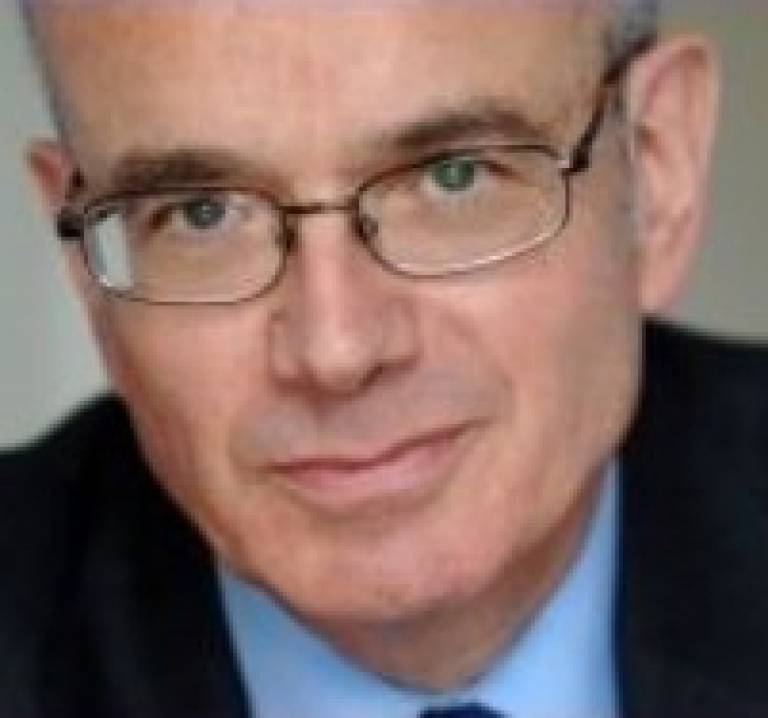Abdulmutallab review: the implications for UCL
8 October 2010
Sir Stephen Wall, Chair of UCL Council, discusses what the recommendations of the
 ucl.ac.uk/caldicott-enquiry/" target="_self">independent review into Umar Farouk Abdulmutallab's time
at UCL mean for those studying and working at UCL.
ucl.ac.uk/caldicott-enquiry/" target="_self">independent review into Umar Farouk Abdulmutallab's time
at UCL mean for those studying and working at UCL.Can you talk about the process of monitoring invitations for speakers, and the monitoring of student societies?
One early suggestion to come out of the report is for UCL Union to supply information to UCL on student society events not held at centrally bookable venues, to ensure a better flow of information to central support services at UCL. This doesn't mean that every cheese and wine event should be monitored, but that there should be practical support and guidance around certain events and speakers. We do in fact already have good procedures in place for monitoring student societies.
How will the monitoring of speakers impact on the question of freedom of speech at UCL?
That is a particularly difficult question. UCL has a tradition for encouraging open debate - and it would be a pity to lose this openness. However, there are counter issues to consider, and the Equalities Act formalises these. The right to freedom of speech has to be balanced with the right not to be faced with offensive and even threatening views. A UUK panel, chaired by Professor Malcolm Grant, is currently examining this matter and its recommendations will help to guide us.
UCL is an international university, with an increasing percentage of students who come from overseas each year. How will this report impact on the pastoral care of international students?
The whole welcome process for international students has recently been upgraded, and personal tutoring mechanisms have become more rigorous. It is mandatory for students to have sessions with a personal tutor, and the ground covered in these meetings covers personal as well as academic issues. We need to find the right balance, since students are adults - although generally young adults.
This review raises questions about issues that are core to UCL's identity and traditions, such as what it means to be a secular university. Can you talk more about this?
Yes - and I should say that there can sometimes be a misunderstanding that secularity implies a hostility to religion, but of course it doesn't - many countries with a secular state such as France or Turkey have a majority of citizens with a religious faith. UCL has a secular governance, but a community of people of many different faiths and of none. It is important that we cater to the different languages of faith among our student population and provide support - for instance, better integrating UCL's chaplains into the lives of all of these students as an important resource for support, regardless of their religious beliefs. For example, I spoke to one chaplain from a Cambridge college who said that 99% of people who came to him were not religious - but they nevertheless valued and needed support.
Have there been positive outcomes from the review process?
It was a good opportunity to have an enquiry where UCL was assessed independently, where the university was completely open. On the one hand it was a great relief that there was no evidence at all that Abdulmutallab was radicalised at UCL. However, it is a discomfiting finding for broader society that there were no signs - that in fact even a year on, the people we interviewed who knew Abdulmutallab can hardly believe it. That finding suggests that we, and society more broadly, will never be able to spot everyone who subsequently emerges as a radical.
But the report did throw up areas for improvements - quite regardless of the process of radicalisation, it suggests ways in which we can set in place good procedures to spot cases where a student may be unhappy and need further support.
What would your main message be to the UCL community?
The basic message is that UCL continues to provide a first
class experience to its students - both in terms of education and more
generally as an opportunity to flourish as adults, with freedom of expression.
We must ensure that we have the right procedures in place at UCL, but we
shouldn't put up unnecessary barriers.
Image: Sir Stephen Wall, Chair of UCL Council
 Close
Close

